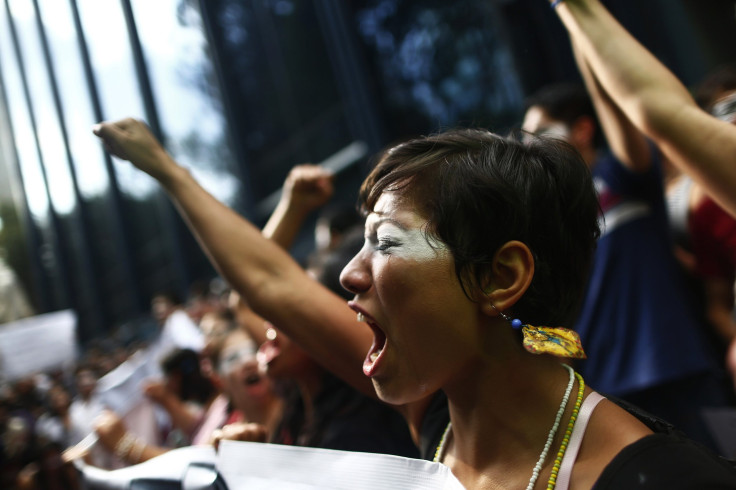Mexican Soldiers Executed At Least 12 People In June, Human Rights Group Says

Members of the Mexican military executed at least 12 people who surrendered after a gunfight in June between troops and suspected criminals, the head of Mexico’s human rights commission said. The organization called the incident one of the worst human rights violations committed by Mexican security forces.
The report, released Tuesday by Mexico’s National Human Rights Commission, validated what many observers had already suspected about the mass deaths that occurred in the southern city of Tlatlaya, and bolstered national outrage that has been swelling in recent months over insecurity in the country.
Until recently, the Mexican army had maintained that soldiers engaged in a gunfight on June 30 with suspected kidnappers, resulting in 22 people being killed. But only one soldier was injured, spurring widespread suspicion about the army’s story.
Witnesses later disputed the army’s version of the events, saying that the alleged criminals had already undergone interrogations and surrendered before soldiers opened fire. Journalists and analysts who visited the warehouse where the shootings took place also said that blood and bullet markings indicated at least five people were killed at close range while lined up against a wall.
The commission’s investigation supported the witnesses’ stories, citing evidence indicating that several of the victims were shot while they were unarmed and not resisting, and that the crime scene had been altered to support the army’s version of events. Other bodies showed signs of being beaten before they were shot, Raúl Plascencia Villanueva, president of the human rights commission, said Tuesday.
Federal prosecutors arrested three soldiers last month in connection with the killings, although Plascencia said that at least five were involved in the massacre. He said state prosecutors coerced the three survivors of the massacre to corroborate the army’s story through beatings and threats of rape, and didn't thoroughly document the crime scene in its investigation.
The Tlatlaya massacre has been the subject of growing anger in Mexico over corruption and impunity in Mexican security forces. That outrage has only grown in recent weeks, following the disappearances of 43 students in Guerrero state, which neighbors Mexico state. Mass protests have cropped up throughout the country to demand justice and reform, and have threatened President Enrique Peña Nieto’s efforts to downplay the country’s security problems in favor of highlighting Mexico’s economic potential.
© Copyright IBTimes 2025. All rights reserved.






















